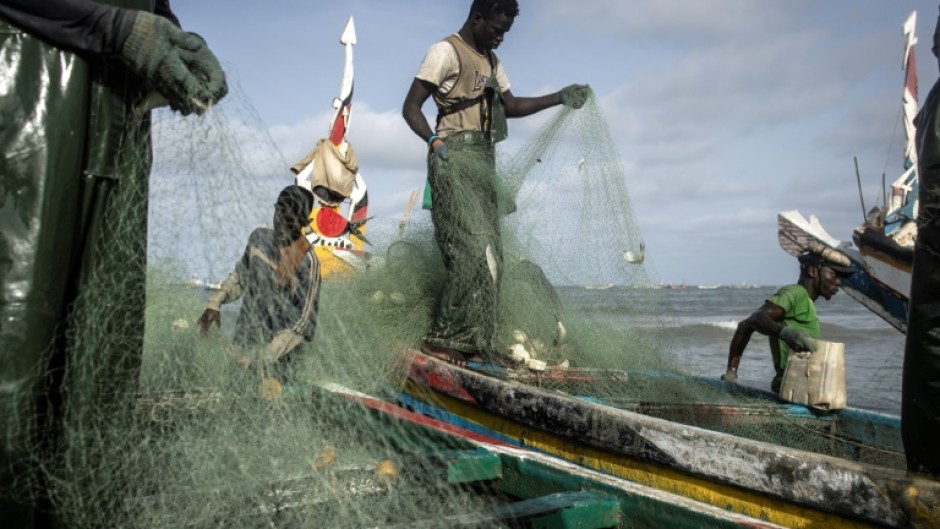DAKAR - European fishing vessels will imminently cease activities in Senegalese waters after the non-renewal of an agreement between Brussels and Dakar, EU ambassador Jean-Marc Pisani said Tuesday.
The accord between the European Union and the West African country that has been in force since 2019 is due to expire at midnight between Sunday and Monday.
Pisani said the agreement would not be renewed for the time being after the European Commission notified the Senegalese government in May of "shortcomings" regarding illegal, unreported and unregulated (IUU) fishing.
"European boats will stop fishing in Senegal's exclusive economic zone from midnight on November 17", Pisani told journalists in the capital Dakar.
"These European boats will be able -- it will be up to the shipowners -- to continue fishing elsewhere", he said, citing agreements between the EU and Senegal's neighbours, The Gambia, Guinea-Bissau, Mauritania and Cape Verde.
"It would not be consistent for the European Union, which has a zero-tolerance policy towards IUU fishing, to renew an agreement with countries that have been notified of this type of problem", he said.
The cessation of fishing in Senegalese waters will affect 18 Spanish and French vessels, which catch tropical tuna and hake and do not represent any real competition for the Senegalese fishing sector, he said.
- Cultural pillar -
Fishing is an economic and cultural pillar in Senegal.
It provides a direct or indirect livelihood for some 600,000 people out of a population of around 18 million, according to a widely accepted figure.
The roughly 50,000 Senegalese fishermen work mainly in traditional wooden vessels known as pirogues.
Fishermen regularly complain about competition from foreign vessels, which they blame for the shortage of fish.
The European Commission had in May judged Senegal to be uncooperative on tackling illegal fishing.
It added it deplored "serious shortcomings" and "failures in monitoring, control and surveillance systems" for Senegalese-flagged ships in extra-territorial waters as well as for foreign ships in Dakar port.
While highlighting "illegal exports" from Senegal to the EU the Commission did say it would give Dakar an opportunity to react and to "remedy" its shortcomings in a "reasonable" time frame.
The controversy over foreign fishing off Senegal was heightened with the election last March to the presidency of Bassirou Diomaye Faye, who has promised to restore sovereignty on this and other issues.
New Prime Minister Ousmane Sonko criticised Monday what he called these "foreign boats (which) come to plunder all our resources", during a visit to the coastal town of Baragny.
Pisani stressed that under the existing accord European vessels were only allowed to take from surplus stocks.
The agreement allowed 10,000 tonnes to be fished every year, yet European boats have only brought up 10,000 tonnes over five years, he said.
The accord brought in 8.5 million euros ($9.1 million) to Senegal over five years, to which are added royalties paid by shipowners, the European Union said in a statement.
"Senegal will no longer receive a financial contribution under the fisheries agreement," the statement added.
Diplomats said on condition of anonymity that the shortcomings have been identified and regularly been discussed over recent years, stressing the accord's termination is not linked to Senegalese internal politics.
Concluding a possible new agreement "cannot be done overnight -- there will be a number of actions that will need to be implemented and that will reasonably take some months," said Pisani.
By Laurent Lozano

